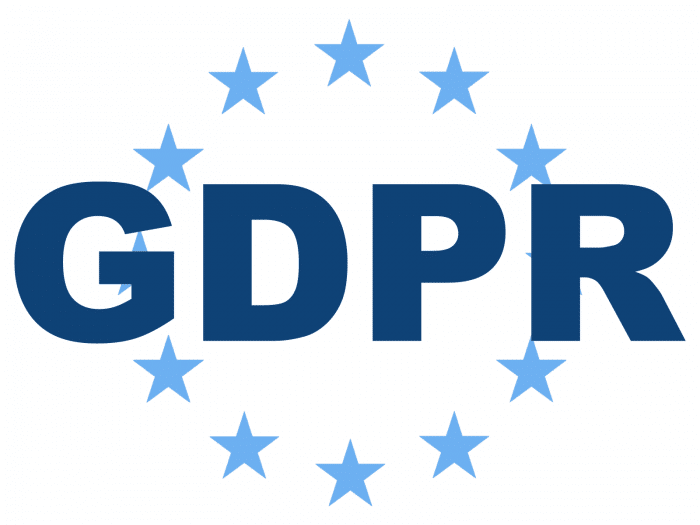The groundwork for compliancy

Privacy and security has always been a part of the Runbox culture. However, the GDPR project made it clear to us that we had to systematically work through how to implement the various aspects of data protection and information security.
Let’s start by recalling the meaning of some important terms:
Privacy is about individual’s right to a private life, and the right to control all information about themselves. Grounded in European Convention on Human Rights (1950), the Norwegian Constitution § 102 states that “Everyone has the right to the respect of their privacy and family life, their home and their communication.” followed by “The authorities of the state shall ensure the protection of personal integrity».
Norway’s law on privacy, the Personal Data Act (PDA1), was introduced as early as 1978, so we have tradition for this kind of legislation. That’s why the GDPR2, in principle, didn’t result in significant changes.
In order to protect privacy, Information Security (IS) is crucial. It is mainly about how to prevent personal data from going astray, but we had to go for a more stringent definition: To secure confidentiality, integrity, authenticity, availability (for the approved purpose only), reliability, resilience (the ability to recover), possession (ownership), and utility (readable for the approved purpose) of the data.
With this in mind, we developed our Information Security Policy (ISP) as a documentation of the GDPR compliancy practices, and GDPR requirements to employees and states the company’s commitment to compliance. Article 24 in the GDPR demands controllers (such as Runbox) to implement appropriate data protection policies, and our ISP is an important part of our response to that requirement.
The purpose of Runbox’ Information Security Policy is to provide rules and guidance for Runbox’ employees, Runbox’ contractual employees/consultants, and everyone else working for Runbox, voluntarily or according to contract/agreement, so that they in all respects act
- to comply with the company’s information security policies,
- to comply with the company’s Privacy Policy and Terms of Service regarding our obligations to our customers,
- to ensure that the processing of Personal Data is in accordance with the PDA/GDPR and ensure that appropriate technical and organizational measures are adapted to the purpose, extent and context of the processing, and ensure that such measures are adapted to the risks for the rights and freedoms of natural persons3.
The ISP is a very comprehensive document, stating our commitment to the protection of our customer’s data, and defining technical and organizational measures to fulfill this obligation.
For instance, we will not store customer’s data on any “cloud” (we use our own servers), we shall never disclose account information or email data to authorities (unless presented with a court order from the Norwegian prosecuting authority), and we shall never scan customer’s data to display ads. More information about this can be found on our Privacy Protection page.
An important aspect of the ISP is to define the responsibilities of two roles/positions: The Managing Director is the personified Data Controller, responsible for GDPR compliancy on behalf of the company, and the appointed Data Protection Officer, who is a watchdog regarding the company’s status where GDPR is concerned.
The ISP imposes strict rules for employees, partners, consultants etc. on how to handle systems and data, anchored in a No Disclosure Agreement and Agreement on Protection of Personal Data. This includes rules for how to process and store data and how to protect digital devices.
Finally, let’s mention that the ISP provides rules for contractual agreements with organizations Runbox has partnered with, consultants etc. so that appropriate technical and organizational measures are implemented to ensure GDPR-compliant data processing and systems development.
All together, we have developed two documents that serve as guidance, and control our behavior regarding the GDPR. These are the RRISM (planning document, mentioned in an earlier blog), and the ISP. It is worth mentioning that these documents are continuously updated when new privacy and security issues arise.
1 The Personal Data Act (the PDA) means the regulations that are currently in force in Norway for the protection of individuals in connection with the processing of personal data, which includes the implementation of GDPR in Norway (2018-07-20).
2 The GDPR means Regulation EU 2016/679 of 27 April 2016 on the protection of individuals with regard to the processing of personal data and on the free movement of such data and repealing Directive 95/46 / EC General Data Protection, General Data Processing Regulation. Article refers to Article in the GDPR.
3 See GDPR Article 4(1).

I was about to ask how many requests Runbox received for account data by authorities, and was pleasantly surprised to find it documented at https://runbox.com/why-runbox/privacy-protection/transparency-report/. Excellent!
It’s this sort of effort that compelled me, a United States citizen, to choose Runbox for my personal email. The latency between the western U.S. and Norway is negligible compared to the security and privacy benefits provided. Thanks and keep it up!
Thank you for your message — we certainly will!